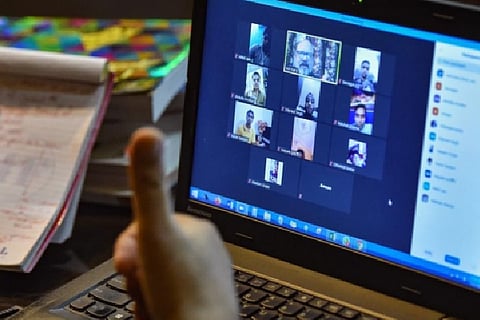

Chennai
The higher education institutions in Tamil Nadu will soon implement a blended mode of teaching and learning where online classes will be given priority. Under the plan, universities and colleges will be allowed to teach up to 40 per cent of the syllabus through online mode, and the remaining 60 per cent in the physical mode, sources said.
As per the new guidelines issued by the University Grants Commission, even examinations could be conducted through online mode. According to UGC sources, blended learning is not a mere mix of online and face-to-face modes, but a combination of meaningful activities in both modes.
“Technology enabled in the blended mode allows students to learn anytime and anywhere, without the barriers of time and location but with the possible support of in-person engagement,” a senior official from the Higher Education Department said referring to the latest concept note from the Commission.Even while promoting digital learning and education, the importance of face-to-face in-person learning is also fully recognised, he said. Accordingly, different effective models of blended learning would be identified for appropriate replication for different subjects. On the role of teachers in the blended learning environment, the official said: “This shift does not mean that teachers play a passive or less important role in students’ education. Quite the contrary, with blended learning, faculty members can have an even more profound influence and effect on students’ learning,” he said.
Explaining the proposal, the official said the UGC would offer a choice of teaching these 240 hours in a blended mode. “Instead of attending 240 classroom hours, students can spend up to a certain hour in online interactions and be present face-to-face for the remaining,” he said. The additional student work (self-study, revision, assignments, projects, assessment preparations, etc.) would remain unchanged. In addition, to cut down expenses, virtual labs are also planned to provide remote access to labs in all major science and engineering disciplines.
“It would help students conduct experiments by arousing their curiosity and learning basic and advanced concepts through remote experimentation but with safety and security,” he said.
The blended mode of education would be implemented after taking feedback from all stakeholders, the official added.
Visit news.dtnext.in to explore our interactive epaper!
Download the DT Next app for more exciting features!
Click here for iOS
Click here for Android